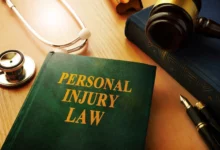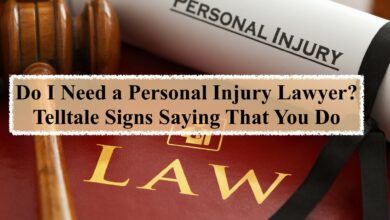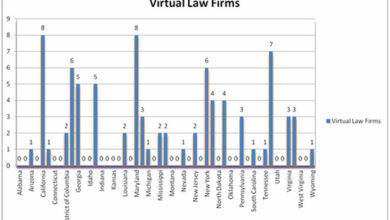Navigating Legal Challenges with a Good Lawyer
Legal challenges can arise unexpectedly in various aspects of our lives, from personal matters to business endeavors. When faced with a legal issue, it is crucial to have the support and guidance of a good lawyer who can navigate the complexities of the legal system on your behalf. A skilled lawyer can provide you with expert advice, protect your rights, and help you achieve the best possible outcome.
The Importance of Choosing a Good Lawyer
Choosing the right lawyer is a critical step in successfully navigating legal challenges. A good lawyer possesses several key qualities that set them apart from their peers. These qualities include:
- Expertise and experience in the relevant area of law
- Strong analytical and problem-solving skills
- Excellent communication and negotiation abilities
- A track record of success in handling similar cases
- Integrity and ethical conduct
When selecting a lawyer, it is essential to consider their specialization. Different legal issues require different areas of expertise. For instance, if you are going through a divorce, you would want to engage a family law attorney who specializes in matrimonial matters. On the other hand, if you are facing criminal charges, a criminal defense lawyer would be more suitable.
Furthermore, it is advisable to review a lawyer’s track record and reputation before making a decision. Online reviews, testimonials, and referrals from trusted sources can provide valuable insights into a lawyer’s capabilities and professionalism.
The Role of a Good Lawyer
A good lawyer plays a pivotal role in guiding clients through legal challenges. They offer a range of services, including:
1. Legal Advice and Consultation
One of the primary roles of a lawyer is to provide legal advice and consultation to clients. They analyze the details of the case, review relevant laws and regulations, and offer guidance on the best course of action. This advice is based on their expertise and experience in the specific area of law.
For example, if you are considering starting a business, a good lawyer specializing in corporate law can advise you on the appropriate legal structure, draft contracts, and ensure compliance with relevant regulations.
2. Representation in Court
If a legal matter escalates to court proceedings, a good lawyer will represent you in front of a judge or jury. They will present your case, argue on your behalf, and use their legal expertise to ensure that your rights are protected.
During court proceedings, a lawyer may cross-examine witnesses, present evidence, and make compelling arguments to support your position. Their familiarity with court procedures and knowledge of relevant laws can significantly influence the outcome of your case.
3. Negotiation and Settlement
In many legal disputes, reaching a settlement through negotiation can be more favorable than going to trial. A good lawyer is skilled in negotiation techniques and can represent your interests during settlement discussions.
For example, if you are involved in a personal injury case, your lawyer can negotiate with the opposing party’s insurance company to secure a fair settlement that compensates you for your injuries and damages.
4. Document Drafting and Review
Lawyers are responsible for drafting and reviewing various legal documents. Whether it’s contracts, wills, or legal agreements, a good lawyer ensures that these documents accurately reflect your intentions and protect your rights.
For instance, if you are buying or selling a property, a real estate lawyer can draft and review the necessary documents, such as the purchase agreement, ensuring that the terms and conditions are favorable to you.
5. Case Strategy and Planning
Developing a solid case strategy is crucial in achieving a favorable outcome. A good lawyer will thoroughly analyze the details of your case, identify potential strengths and weaknesses, and devise a strategic plan to maximize your chances of success.
By leveraging their expertise and experience, a lawyer can anticipate potential challenges and devise effective strategies to overcome them. This proactive approach can significantly impact the outcome of your legal matter.
Case Study: The Importance of a Good Lawyer in a Criminal Trial
Let’s consider a case study to highlight the importance of a good lawyer in a criminal trial. John, a young man with no prior criminal record, is charged with a serious offense. He is facing the possibility of imprisonment and a tarnished reputation if found guilty.
In this scenario, John’s family engages a skilled criminal defense lawyer who specializes in cases similar to John’s charge. The lawyer immediately begins working on the case, meticulously reviewing the evidence, and identifying potential flaws in the prosecution’s case.
During the trial, the lawyer cross-examines the prosecution’s witnesses, exposing inconsistencies and raising doubts about their credibility. They present expert witnesses who provide testimony supporting John’s defense. Additionally, the lawyer strategically argues legal technicalities that may be in John’s favor.
Thanks to the lawyer’s expertise and persuasive arguments, the jury finds John not guilty, securing his freedom and preserving his reputation.
The Cost of Legal Representation
Legal representation comes at a cost, and it is essential to understand the financial aspects before engaging a lawyer. Lawyers typically charge based on an hourly rate or a flat fee, depending on the nature and complexity of the case.
Hourly rates vary based on factors such as the lawyer’s experience, reputation, and location. It is crucial to discuss the fee structure and obtain a clear understanding of the lawyer’s billing practices before proceeding.
In certain situations, such as personal injury cases, lawyers may work on a contingency basis. This means that they only receive a fee if they successfully secure a settlement or win the case in court. Contingency fees are typically a percentage of the final settlement or award.
While legal representation can be costly, it is important to consider the potential consequences of not having a good lawyer on your side. Inadequate legal representation can result in unfavorable outcomes, financial losses, and even personal harm.
FAQs about Navigating Legal Challenges with a Good Lawyer
1. How do I find a good lawyer?
Finding a good lawyer involves conducting thorough research, seeking recommendations from trusted sources, and reviewing online reviews and testimonials. It is important to consider the lawyer’s expertise, experience, and track record in handling similar cases.
2. How much does a lawyer cost?
The cost of a lawyer varies depending on several factors, including their experience, reputation, and the complexity of the case. Lawyers may charge an hourly rate, a flat fee, or work on a contingency basis, depending on the nature of the legal matter.
3. Can I represent myself in legal proceedings?
While it is possible to represent yourself in legal proceedings, it is generally not advisable, especially for complex cases. The legal system can be intricate, and without proper knowledge and expertise, you may risk compromising your rights and interests.
4. How can a lawyer help me in negotiation and settlement?
A lawyer can help you in negotiation and settlement by representing your interests, assessing the strength of your position, and leveraging their negotiation skills to secure a favorable outcome. They can also ensure that any settlement agreement protects your rights and interests.
5. What should I do if I cannot afford a lawyer?
If you cannot afford a lawyer, there are options available to access legal representation. These include pro bono services provided by legal aid organizations, public defenders for criminal cases, and legal clinics that offer free or low-cost legal assistance. It is important to explore these options to ensure you have proper legal representation.
Conclusion
Navigating legal challenges can be overwhelming and complex, but with the support of a good lawyer, you can confidently address legal issues and protect your rights. By choosing a lawyer with expertise in the relevant area of law and a track record of success, you can benefit from their legal advice, representation, and negotiation skills. Remember to consider the cost of legal representation and explore options if affordability is a concern. With a good lawyer by your side, you can navigate the legal system more effectively and increase your chances of achieving a favorable outcome.
FAQs After The Conclusion
1. How do I find a good lawyer?
Finding a good lawyer involves conducting thorough research, seeking recommendations from trusted sources, and reviewing online reviews and testimonials. It is important to consider the lawyer’s expertise, experience, and track record in handling similar cases.
2. How much does a lawyer cost?
The cost of a lawyer varies depending on several factors, including their experience, reputation, and the complexity of the case. Lawyers may charge an hourly rate, a flat fee, or work on a contingency basis, depending on the nature of the legal matter.
3. Can I represent myself in legal proceedings?
While it is possible to represent yourself in legal proceedings, it is generally not advisable, especially for complex cases. The legal system can be intricate, and without proper knowledge and expertise, you may risk compromising your rights and interests.
4. How can a lawyer help me in negotiation and settlement?
A lawyer can help you in negotiation and settlement by representing your interests, assessing the









